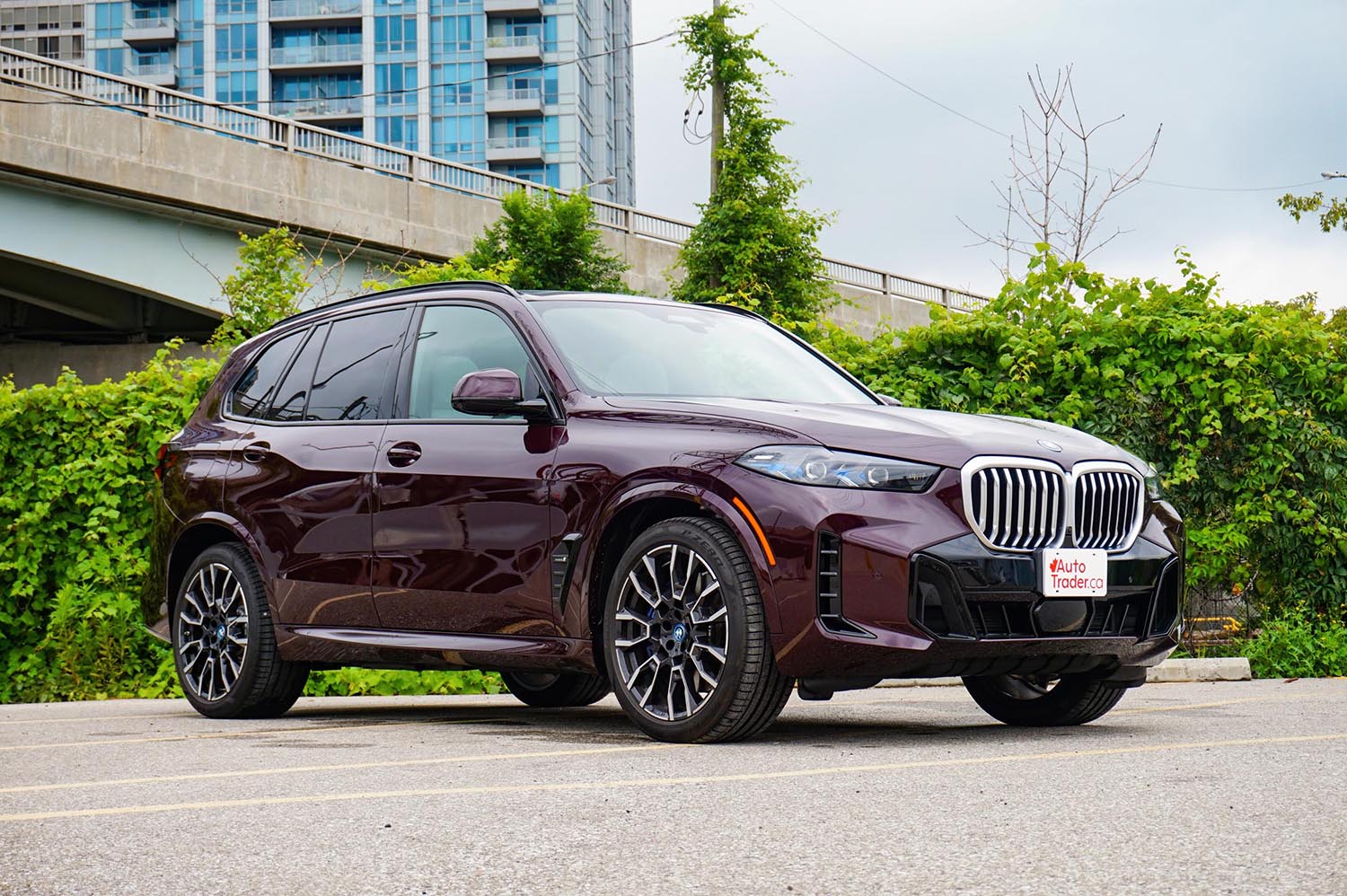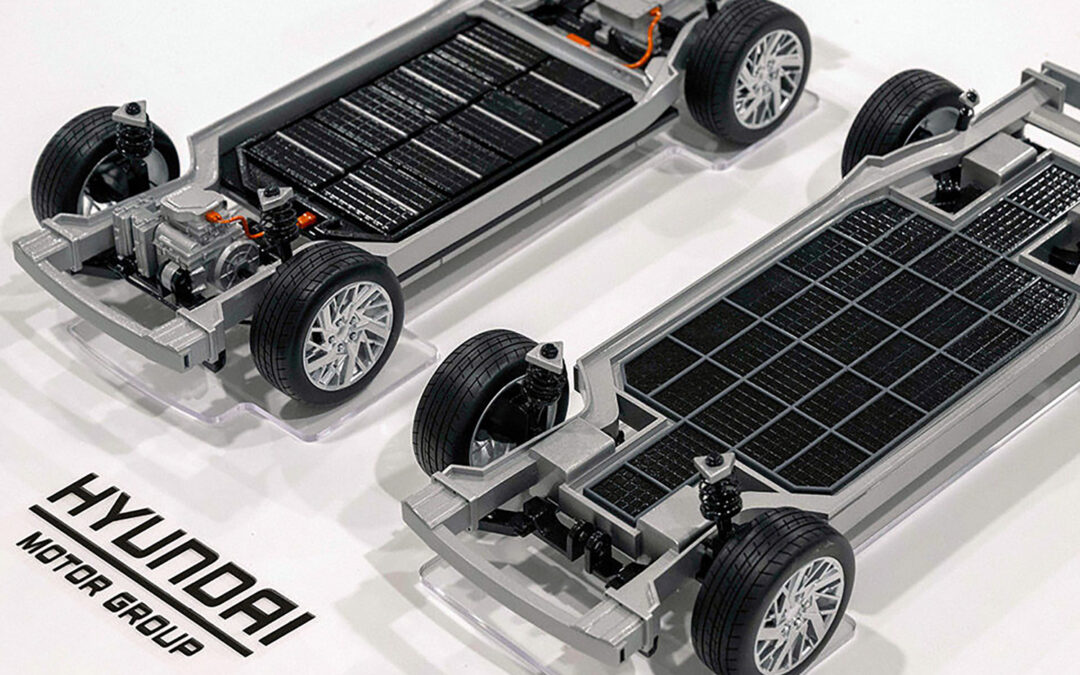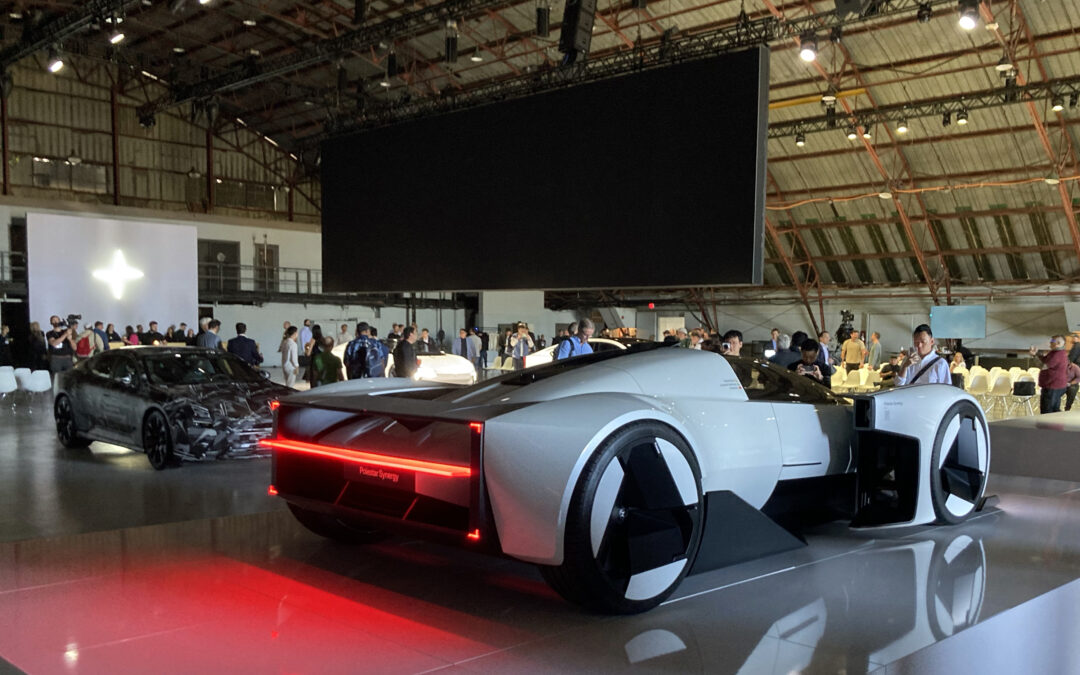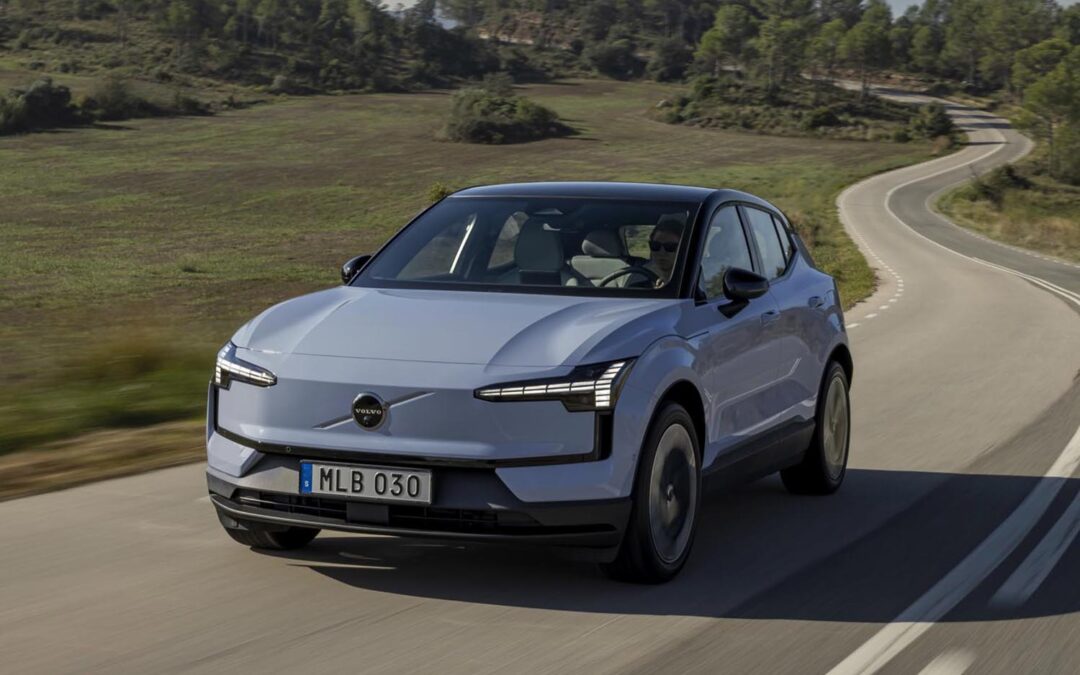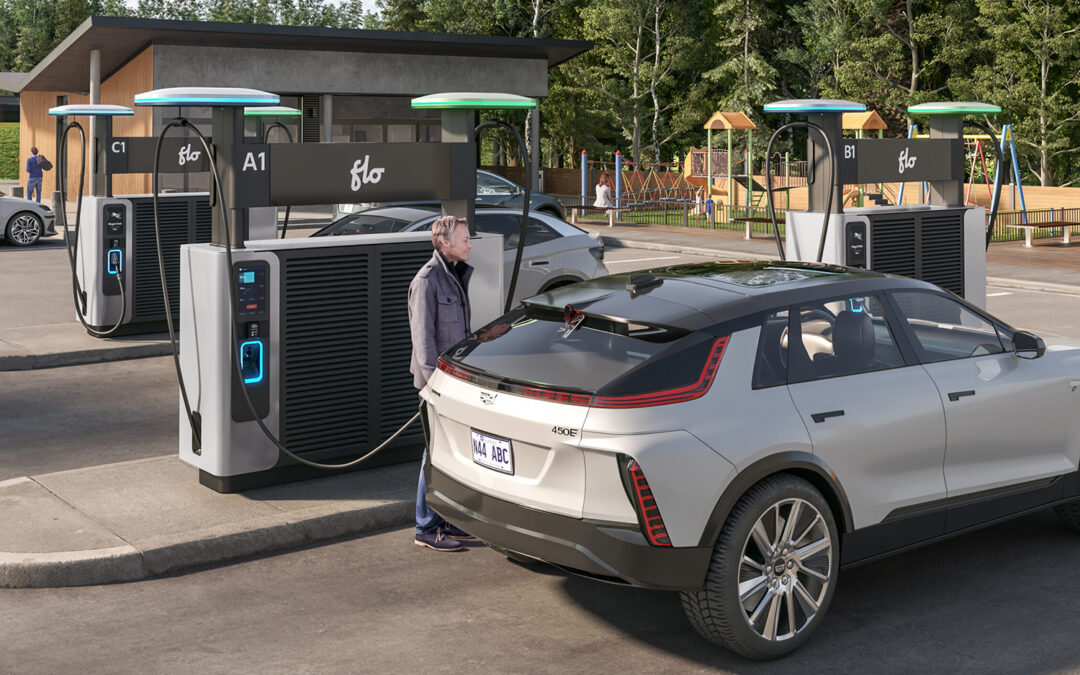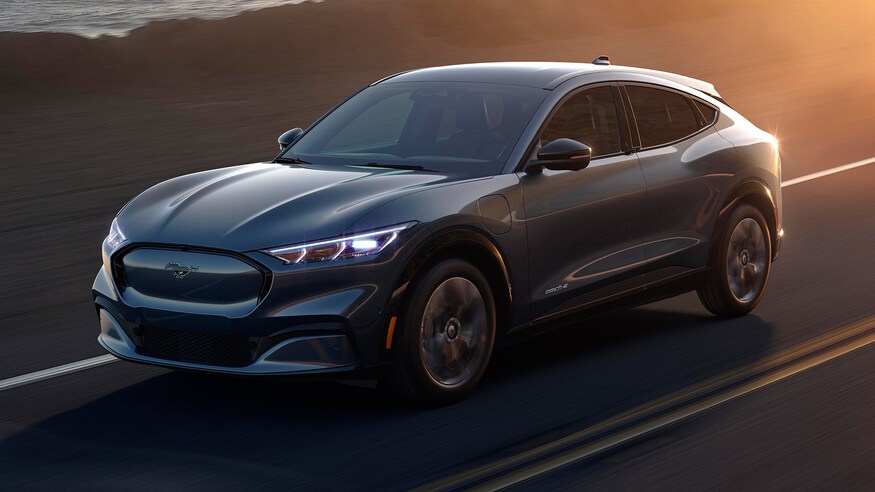I used to assume that a vehicle couldn’t be both efficient and powerful.
Those qualities are typically mutually exclusive, but the newest version of the plug-in hybrid (PHEV) X5 from BMW, is out to prove that it can blend more than a few attributes that don’t usually go together. As electrification becomes the norm and PHEVs make up the middle ground between gas-powered vehicles and fully electric ones, it’s cool to see how a big battery can augment performance while simultaneously improving fuel economy in the 2024 BMW X5 xDrive50e.
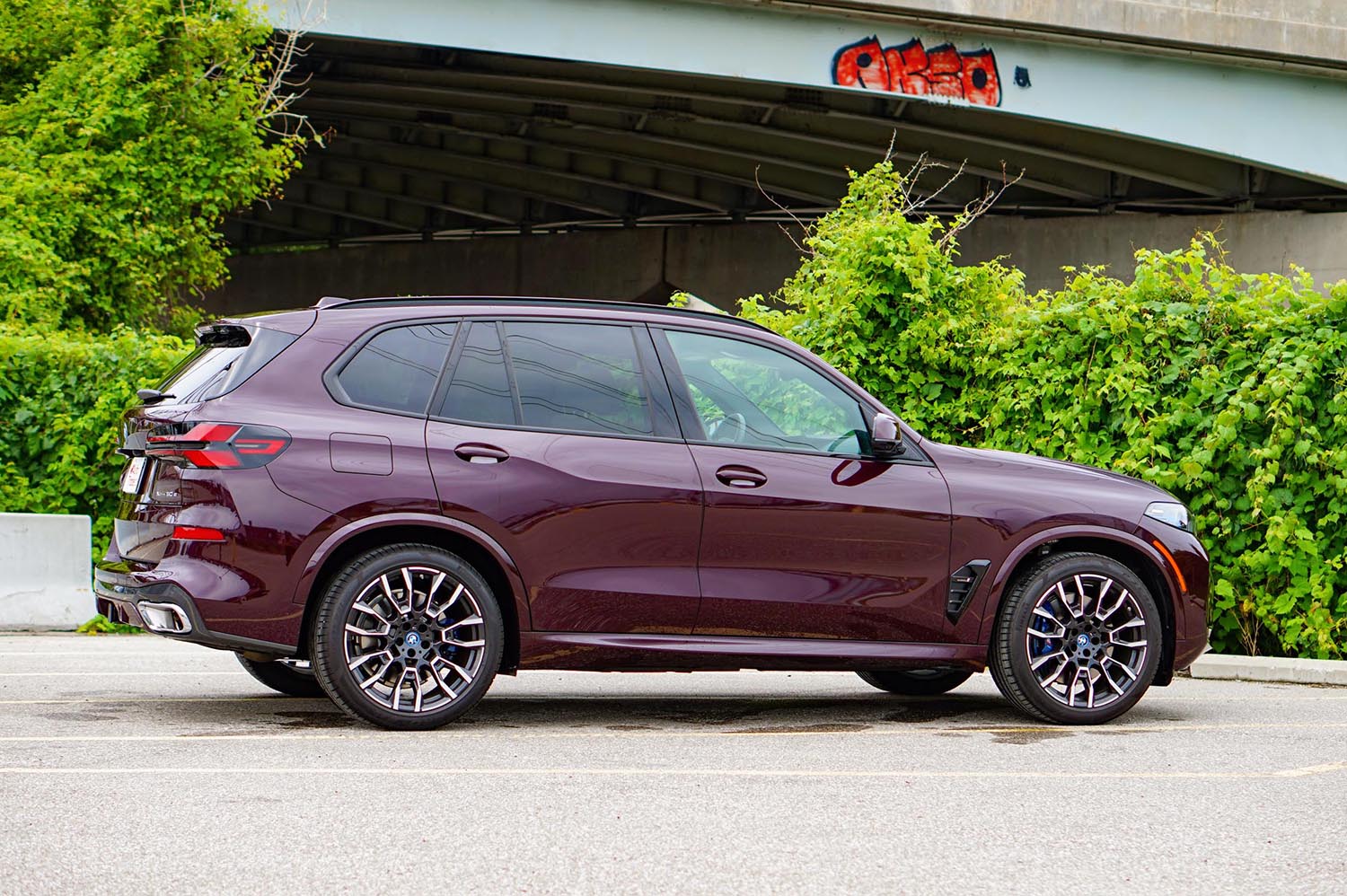
2024 BMW X5 xDrive50e / Jodi Lai, AutoTrader
Styling: 9/10
The 2024 BMW X5 lineup got minor styling tweaks, with a sharper headlight design and more sculptural elements around the grille and intakes. Drivers can also opt for an illuminated grille – some people think it’s tacky, but I love being extra, so I think it’s great. The taillights are also more angular and aggressive than before, and in general, the X5 looks like the posh SUV it is, with just enough elements to add visual interest without going over the top.
There’s a lot going on with the front bumper, but it doesn’t take away from the overall vibe. Plus it’s done in the same gloss black, so it doesn’t stand out too much.
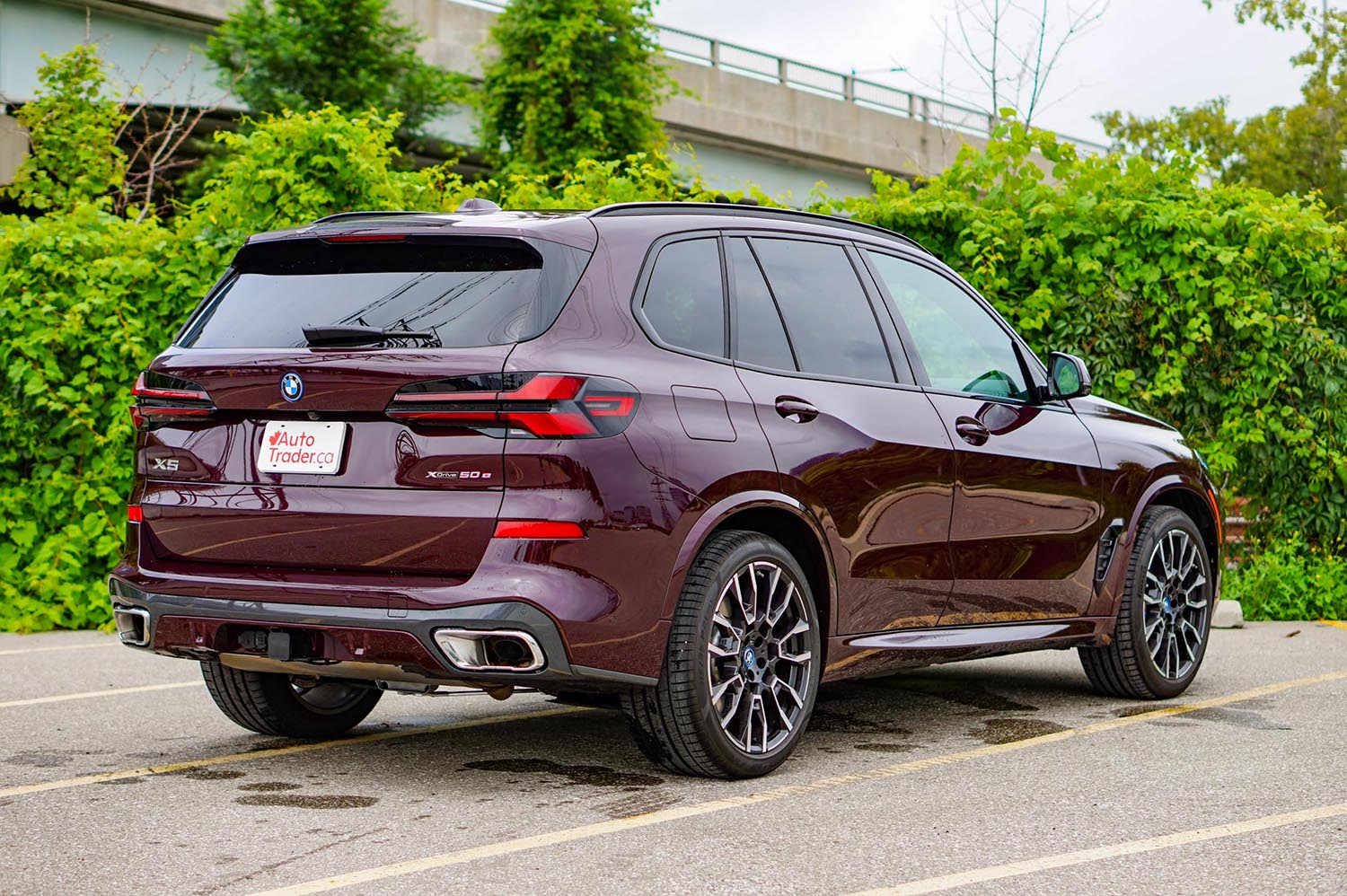
2024 BMW X5 xDrive50e / Jodi Lai, AutoTrader
Inside, the cabin is plush with this tester’s quilted white leather, glossy wood trim, and ambient lighting serving the luxury you’d expect. I’m not a fan of the glossy wood – I would opt for one of the available open-pore trims simply because they hide dust better.
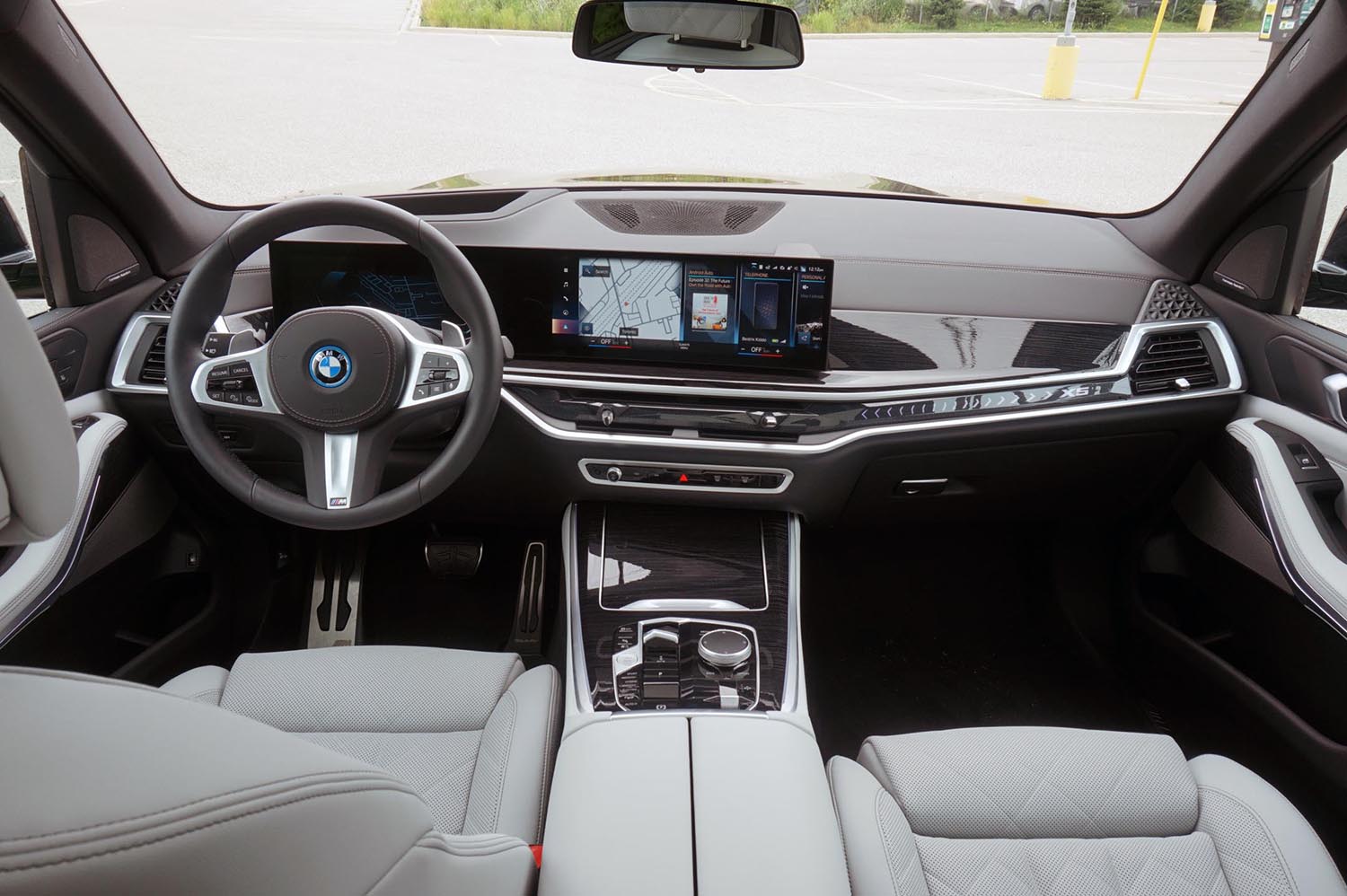
2024 BMW X5 xDrive50e / Jodi Lai, AutoTrader
Power: 10/10
The 2024 BMW X5 xDrive50e is powered by a turbocharged 3.0L inline six-cylinder engine augmented by an electric motor and a battery mounted under the SUV’s floor that holds 25.7 kWh of usable energy. BMW’s inline-six already epitomizes smoothness and power, but it gets even better combined with the PHEV system. With a total system output of 483 hp and 516 lb-ft of torque, the X5 PHEV is more powerful and efficient than the previous one.
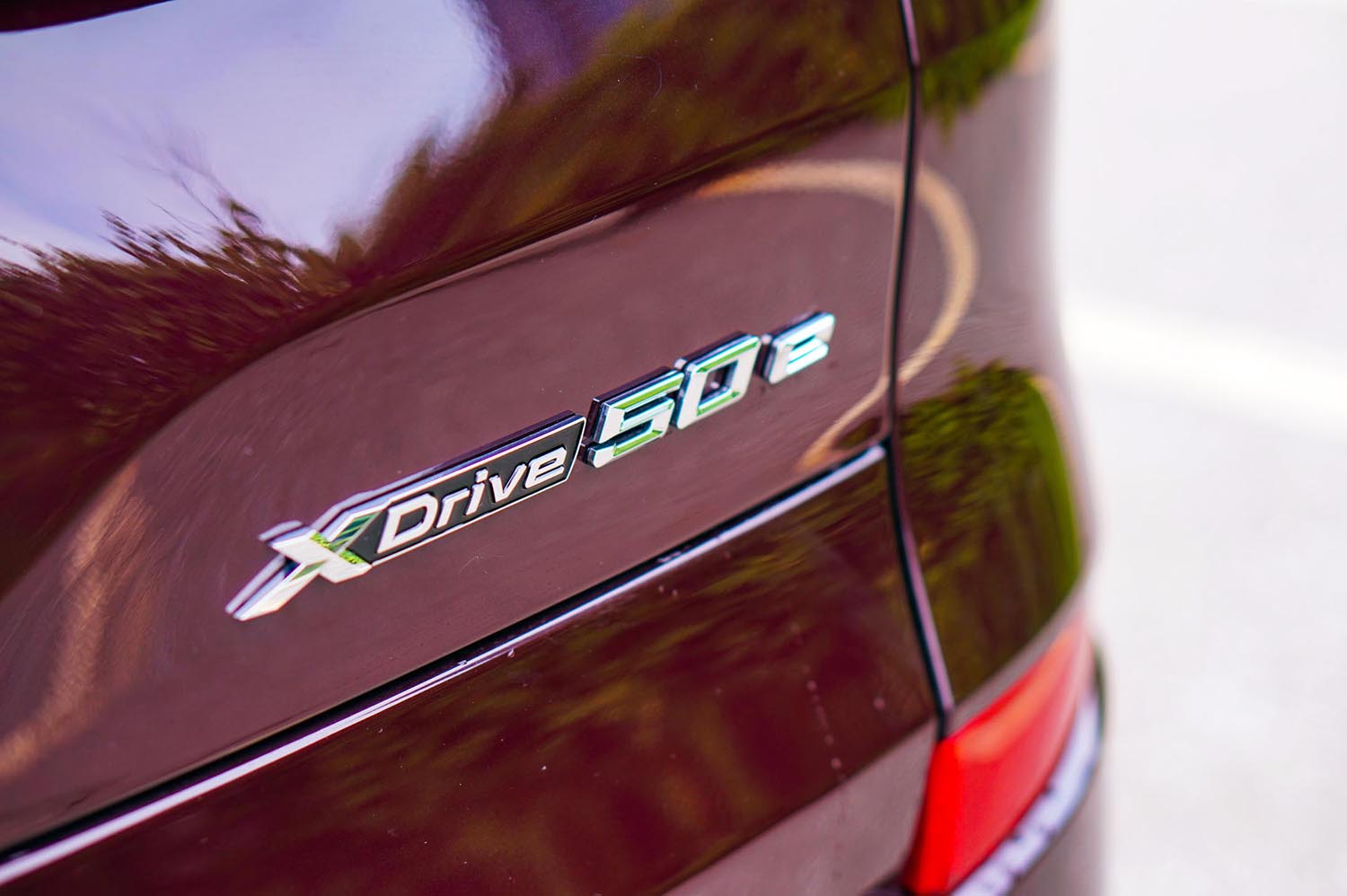
2024 BMW X5 xDrive50e / Jodi Lai, AutoTrader
With all-wheel drive, adaptive regenerative braking, and BMW’s proven eight-speed automatic transmission, the entire powertrain comes together seamlessly. You can’t feel or hear anything when the X5 flips between gas and battery power, with the only indication being graphics displayed in the digital instrument cluster.
Even the regenerative braking sets a new standard for smoothness. The system is strong enough to recuperate a couple kilometres of range while coasting down an off-ramp. It’s also not twitchy at all, so the system is easy to operate smoothly without any risk of making your passengers carsick.
The default drive mode is hybrid, which uses the gas engine and the electric system to blend performance and efficiency. Sport mode focuses on using the gas engine and sharpens up the drive, and EV mode will run solely on battery power if it’s available.
Fuel Economy: 10/10
The X5 PHEV is officially rated to burn 10.9 L/100 km in the city, 10.2 on the highway, and 10.6 combined of 91-octane fuel, which is already impressive for an SUV of this size and one with all-wheel drive. On electric power alone, it can drive approximately 64 km and is rated at just 4.0 Le/100 km – for litres equivalent.
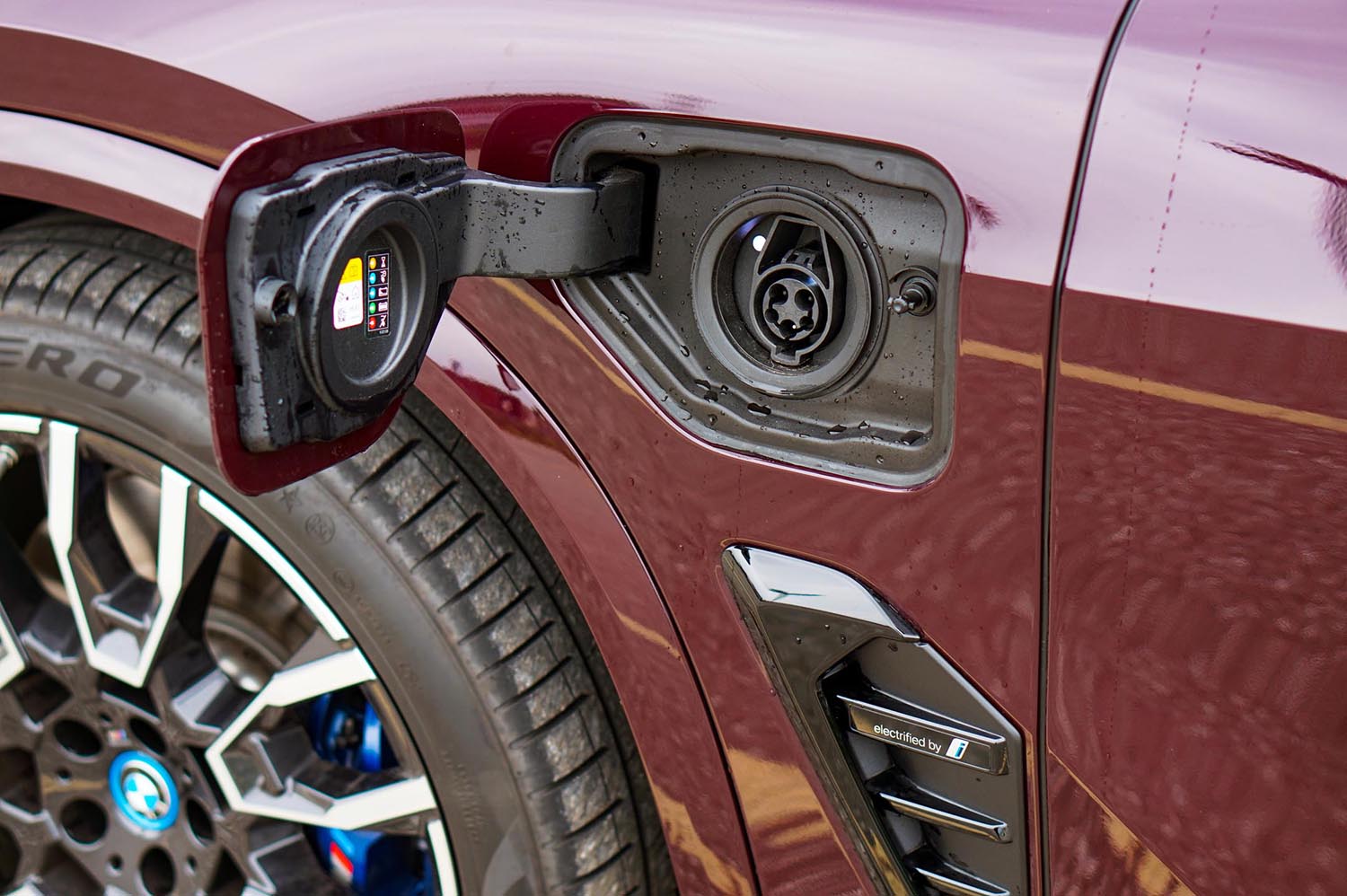
2024 BMW X5 xDrive50e / Jodi Lai, AutoTrader
I did something very bad during this test drive and didn’t plug it in once to recharge the battery (to be fair, this is quite common among PHEV drivers, according to some automakers), yet I still managed to get 8.7 L/100 km after 650 km of mixed testing with lots of highway driving.
The X5 xDrive50e comes with an onboard charger capable of Level 1 and Level 2 charging, though you’ll still need access to a 240-volt outlet to get Level 2 speeds. BMW has doubled the X5 PHEV’s Level 2 charging speeds to accept up to 7.4 kW, which can charge the battery from empty to full in about three hours.
Driving Feel: 9/10
Power delivery is smooth and robust, and with the PHEV system there’s no waiting for an instant burst of acceleration. Acceleration from a standstill to 100 km/h is officially rated at just 4.8 seconds, plenty enough to pass and get up to highway speeds with seemingly no effort.
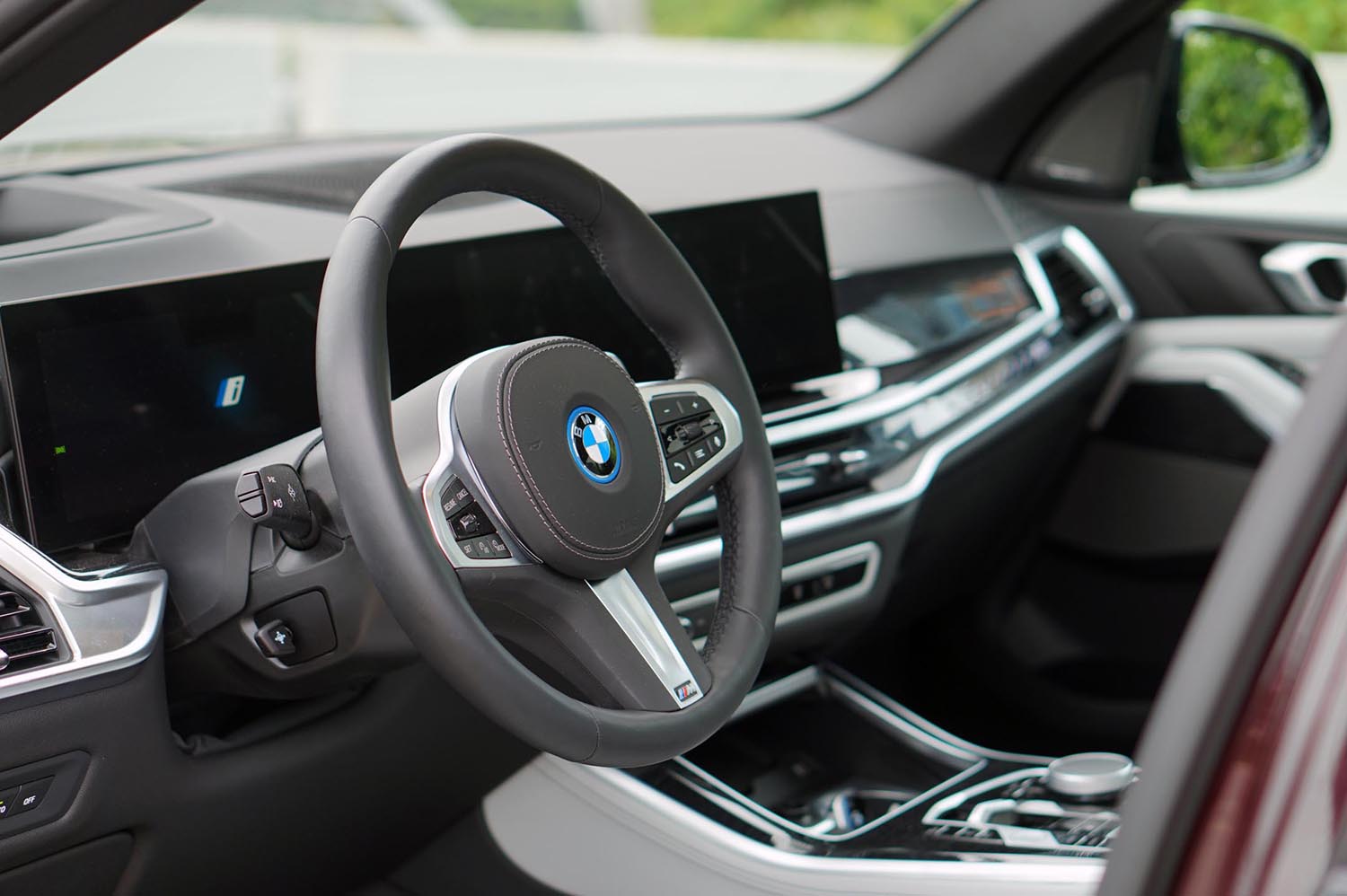
2024 BMW X5 xDrive50e / Jodi Lai, AutoTrader
I was impressed by how smooth and swift the X5 is – it’s not the break-neck, sick-to-your-stomach acceleration you’d get with a pure performance EV, but this SUV builds speed quickly and delivers it elegantly without ever missing a beat.
The adaptive air suspension is a highlight, as it makes the X5 feel like it’s gliding over rough roads yet still gives it enough stiffness to handle a corner like a BMW should. I wish the steering was sharper and that the chunky A-pillar didn’t block so much forward visibility, but the X5 delivers an excellent drive experience.
Practicality: 8/10
The X5’s practicality surprised me. From the deep door pockets big enough for large water bottles to the cubbies for small item storage and the grocery hooks in the trunk, it’s clear that there was a focus on being family-friendly.
The split tailgate can close by pressing the button on the top half. I appreciate that the doors lock themselves as you walk away with the fob in your pocket and unlock as you approach.
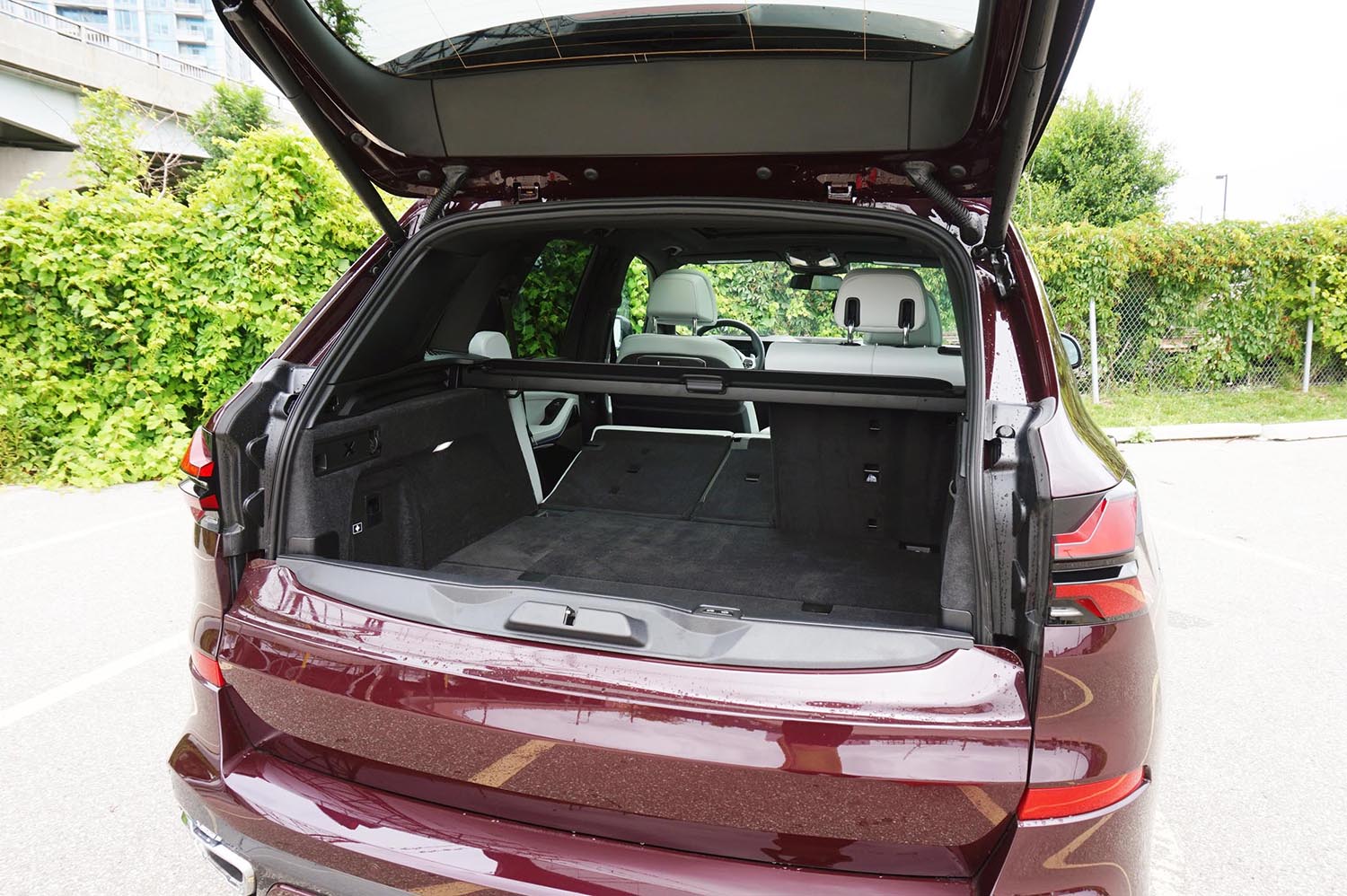
2024 BMW X5 xDrive50e / Jodi Lai, AutoTrader
The trunk holds 500 L, and with the 40/20/40 rear seats folded, it opens up a large 1,720 L. One downside is that the seats must be folded down manually – there are no buttons or levers in the trunk to fold them automatically, a disappointment at this price.
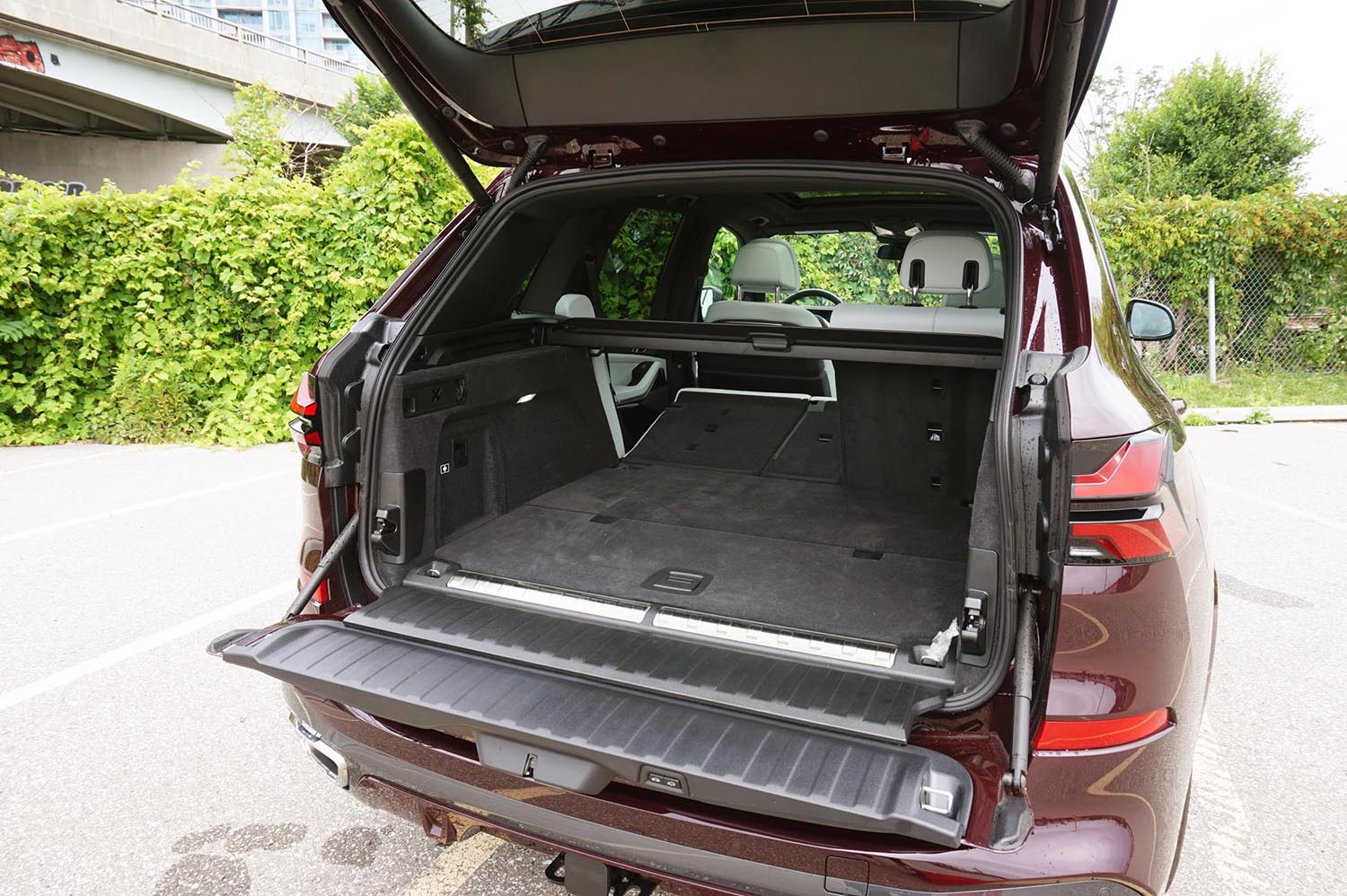
2024 BMW X5 xDrive50e / Jodi Lai, AutoTrader
Comfort: 9/10
With the air suspension working wonders to smooth out rough roads and barely any noise from the outside making its way in, the cabin is peaceful and comfortable. The seats are super plush but also supportive during long drives, there’s plenty of room for all passengers, and upgrades add ventilated seats for front passengers and heated seats and sunshades for rear passengers.
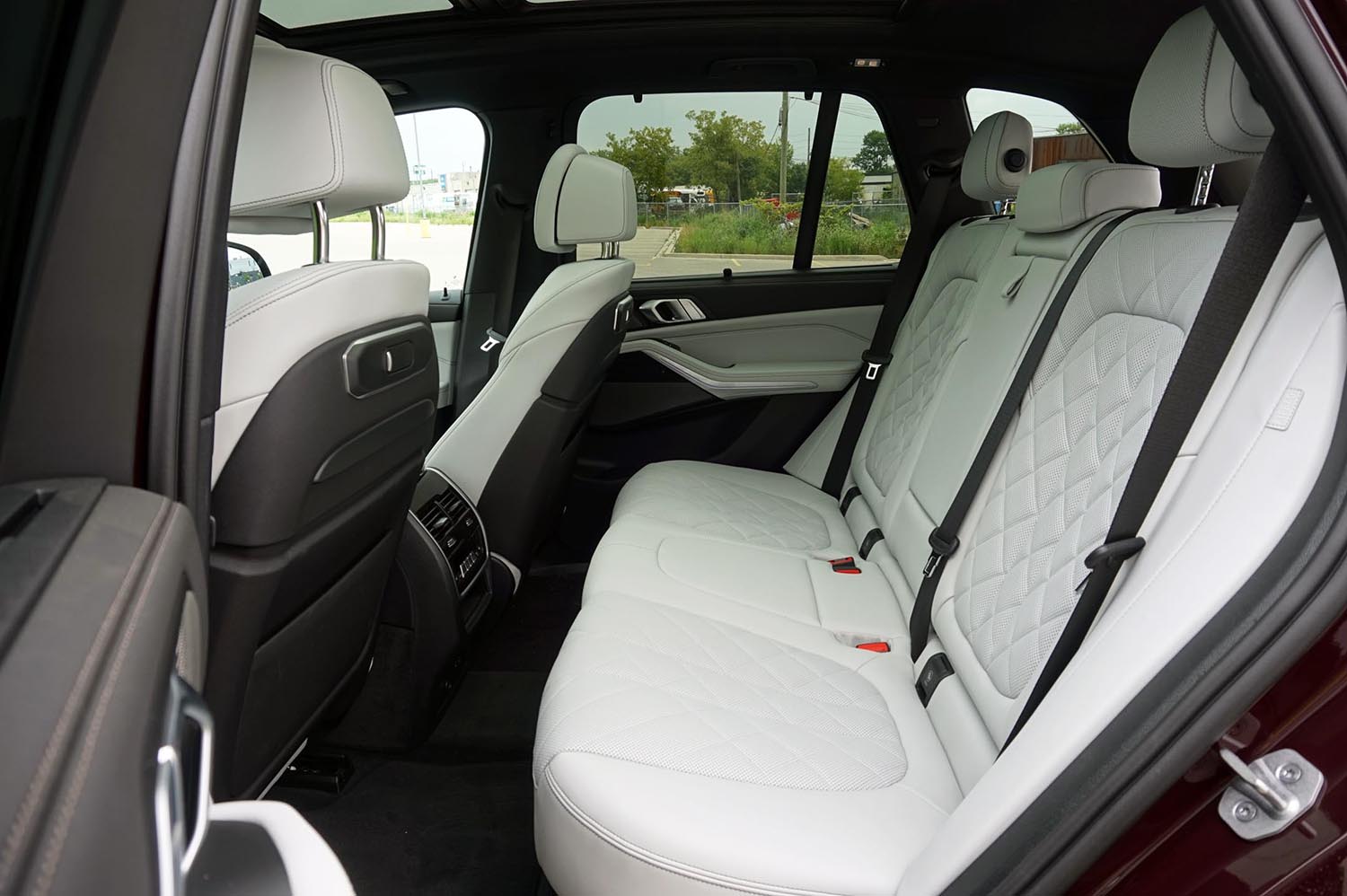
2024 BMW X5 xDrive50e / Jodi Lai, AutoTrader
User-Friendliness: 9/10
The large curved infotainment screen is a highlight, and it combines a touchscreen with BMW’s rotary knob controller. The infotainment system is logical, the menus make sense, and nothing is hard to find, with useful shortcuts available for the most commonly used functions.
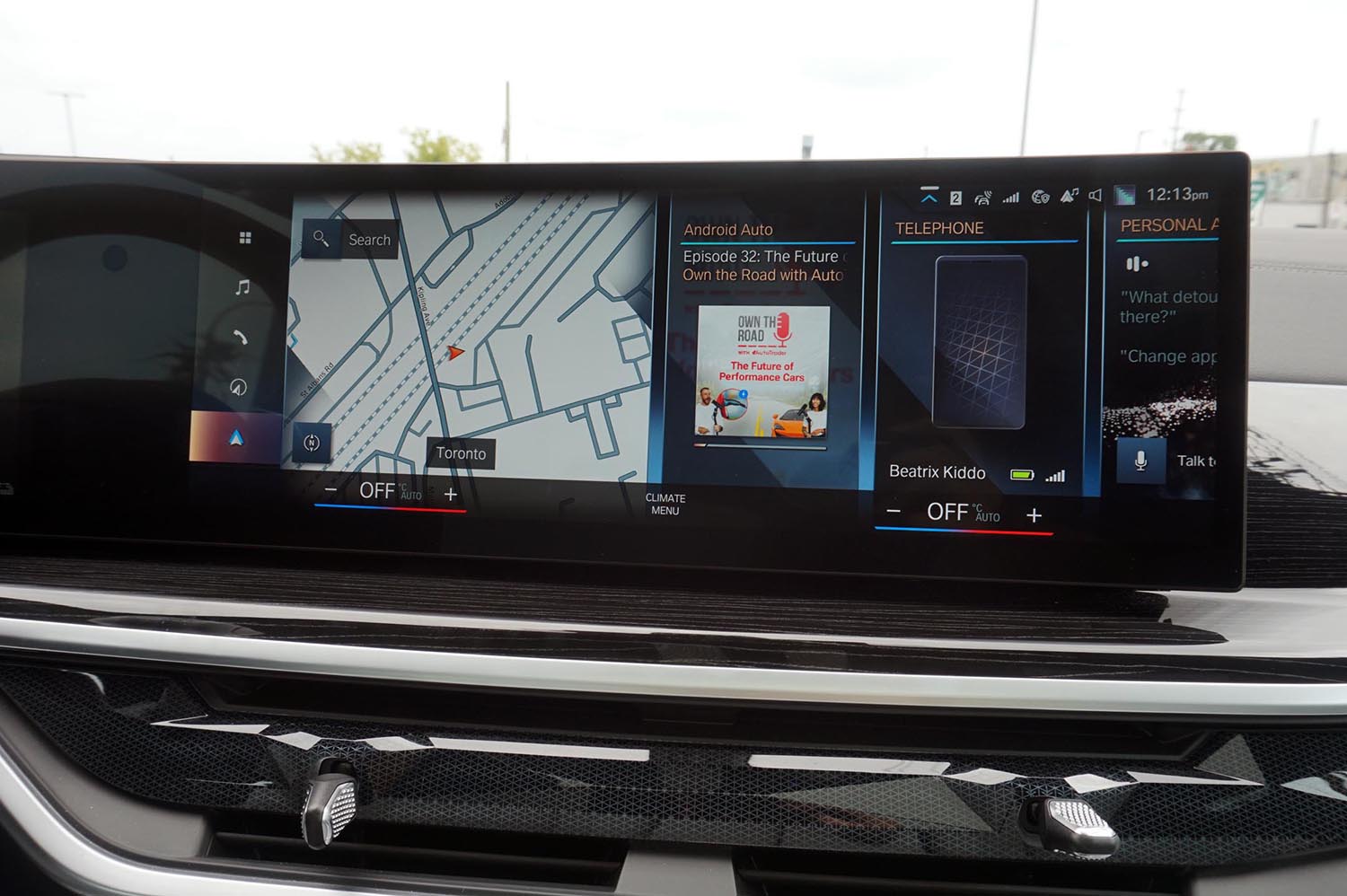
2024 BMW X5 xDrive50e / Jodi Lai, AutoTrader
The wireless Apple CarPlay and Android Auto systems use all the available screen real estate, and smartphone mirroring is well integrated into the X5’s system. If you’re using Google Maps, for example, you can see navigation instructions in the head-up display and in the digital instrument cluster. The augmented reality navigation, however, only works with the native BMW system.
Features: 8/10
BMW loves to charge extra for features I consider essential at this price, and the X5 xDrive50e is no exception. While most every tech, comfort, and connectivity feature is available, there’s little that comes standard. At this price, features like wireless phone charging and ventilated seats should be standard, but they’re part of pricey upgrade packages in the X5.
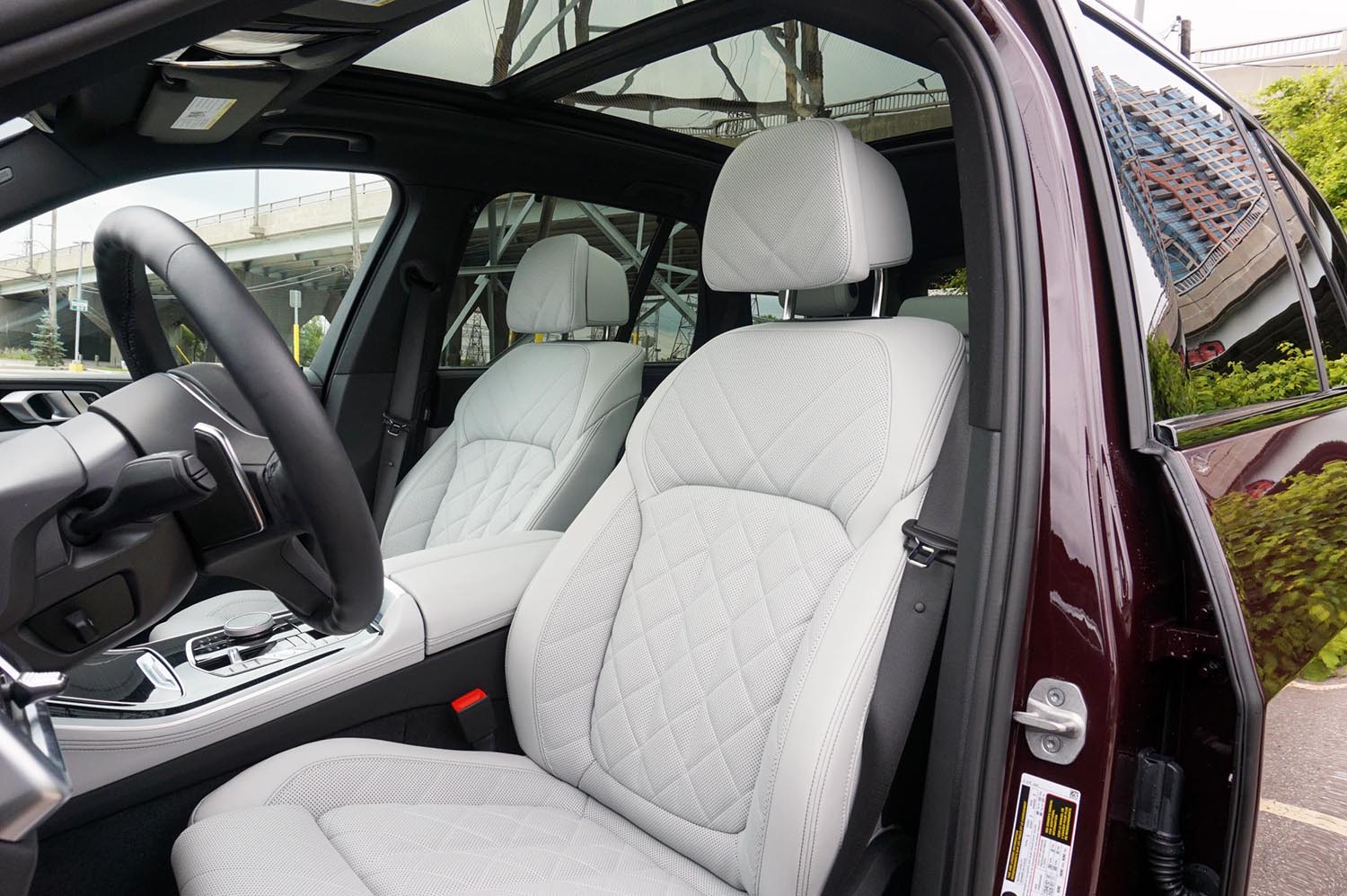
2024 BMW X5 xDrive50e / Jodi Lai, AutoTrader
Safety: 8/10
The same goes for its safety equipment; the basics like blind-spot monitoring with rear cross-traffic alert and lane departure warning are covered, but you’ll have to pay extra for features like the highway driving assistant. However, it’s just a $2,500 upgrade, and I appreciate that the systems work together without being too annoying.
The only issue I found was that the adaptive cruise control’s braking is abrupt even in a relaxed setting, causing panic moments while in stop-and-go traffic. I wish the braking was smoother and more natural-feeling.
Value: 7/10
The 2024 BMW X5 xDrive50e’s powertrain is so solid that it almost seems worth the $90,500 price of admission plus the $2,480 destination fee, but with its more than $16,000 in options, the price easily eclipses the six-figure mark for an as-tested price of $109,580. While the SUV’s performance, build quality, brand cachet, and luxurious interior help justify the price tag, I don’t like that many of the desired features are part of expensive upgrade packages, whereas other automakers make them available at much lower price points.
The Verdict
The 2024 BMW X5 xDrive50e is the total package. By blending performance so well with efficiency, BMW proves that a vehicle can confidently check multiple boxes for many different types of drivers with almost no compromises. The X5 PHEV comes together so seamlessly that it could be one of the best in its segment, regardless of the powertrain.
Specifications
Engine Displacement 3.0L
Engine Cylinders Turbo I6 PHEV
Peak Horsepower 483 hp net
Peak Torque 516 lb-ft net
Fuel Economy 10.9 / 10.2 / 10.6 L/100 km cty/hwy/cmb; 4.0 Le/100 km combined (EV mode); 64 km est. EV range
Cargo Space 500 / 1,720 L seats up/down
Model Tested 2024 BMW X5 xDrive50e
Base Price $90,500
A/C Tax $100
Destination Fee $2,480
Price as Tested $109,580
Optional Equipment
$16,500 – Premium Enhanced Package, $8,500; M Sport Package, $2,500; 21-inch wheels, $500; Advanced Driver Assistance Package, $2,500; Fineline Black Wood Trim w/Metal Effect, $250; Ametrine Metallic, $1,000; Illuminated Kidney Grille, $500; Trailer Tow Hitch, $750
This article was originally published on AutoTrader.ca
